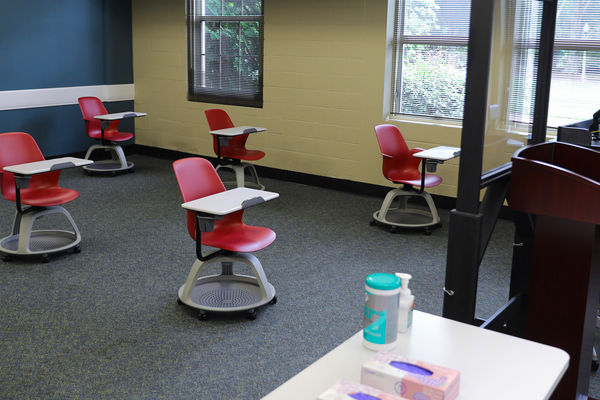Furman prides itself on creating a campus of open-minded and critical thinkers. University pamphlets flaunt independent and mature learners engaged in the intense discussion that makes Furman’s liberal arts curriculum shine. And for the most part, that’s true. Classes are stimulating — students are truly thinking. Recently, however, these characteristics have been relegated to the confines of the classroom. Once students escape the watchful eyes of professors, discussion etiquette is an afterthought.
The past few months have been turbulent. With COVID-19, Black Lives Matter protests and an upcoming election, the nation has had a lot to talk, think and post about. Instagram has become a forum for political activism, and stories have shifted from memes and vacation pictures to cameos of current events.
The early use of social media as an educational tool was helpful. Yet as movements gained more attention, I began to notice issues with this form of communication. Captions changed from heartfelt snippets of information to close minded statements such as “unfollow me if you disagree.”
Blatant dismissal of opposing perspectives is a worrisome trend that is quickly becoming a norm. In the United States, citizens have the freedom to voice their opinions, which is protected by the First Amendment. This is not a freedom permitted in every country, and should not be taken for granted. It ought not to justify ignoring any opinion, evidence or person you disagree with. Our right to speak also carries a responsibility to listen.
The dichotomy between “supervised” discussion and social media dialogue is frightening. I often witness peers who appear receptive in class publicly engaged in “cancel culture.” Being attentive and open-minded should not end at the threshold to the classroom. It should be practiced in everyday life. The things we learn in the classroom are not meant to stay contained within academic buildings.
Cancel culture has ramifications inside the classroom as well. If students grow more accustomed to hostile social media reactions, they might expect to meet the same adversity in the classroom. Class discussions could become stifled as students fear backlash from peers, and the current positive classroom experience could morph into something much less formative.
The personal and intellectual growth that Furman promises us when we become a Paladin relies on students remaining open and engaged. If the person next to you in class is not willing to listen to all sides of a debate on social media, are they truly willing to listen to you in an academic setting? If not, Furman lacks the atmosphere of free speech necessary for an academic community. This is a shortcoming that needs to be addressed by the student body. The most logical way is a simple one as well—stop cancelling people on social media. Be open to new ideas. Do not let the anonymity of a screen let you forget the proper ways to treat, and listen, to others.
